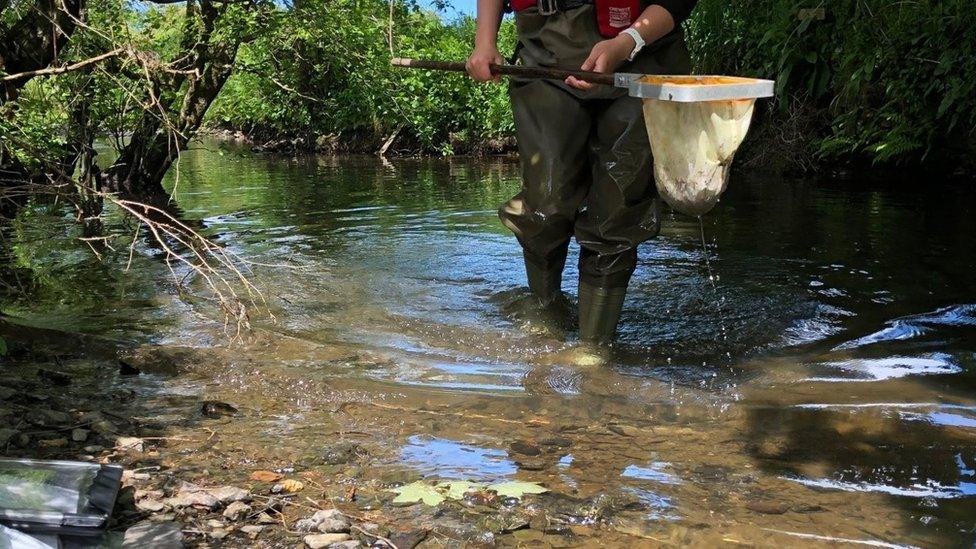Thousands of River Tamar salmon tagged for fish stock data
- Published
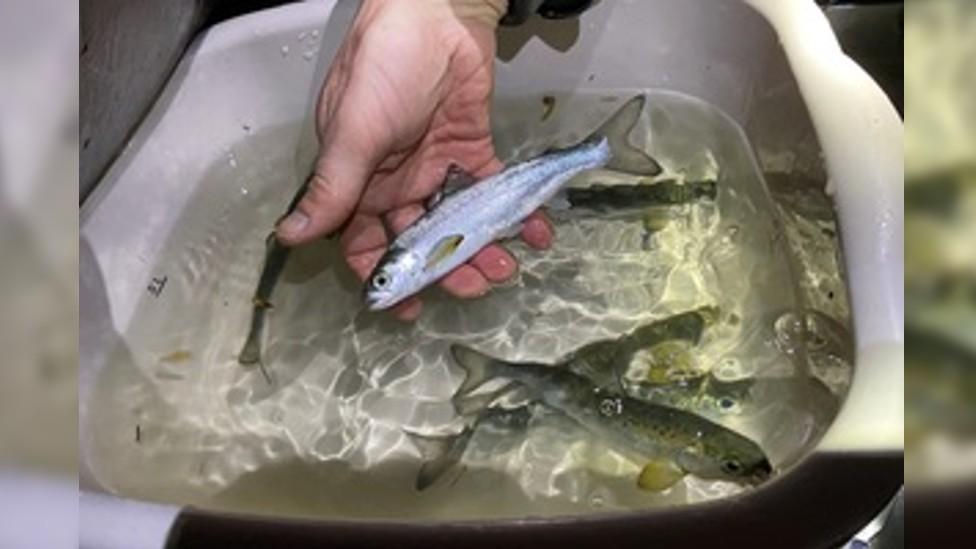
Salmon are key indicators of climate change
More than 4,000 juvenile salmon have been tagged to help scientists monitor survival rates.
The Environment Agency tagged the young fish - known as smolts - before they left the River Tamar, on the Devon and Cornwall border, and travelled out to sea.
The tags can be used to detect adult fish returning to the river.
As well as the salmon smolts, nearly 900 sea trout smolts were also fin clipped for monitoring.
The agency said salmon and sea trout were monitored "intensively" on the river to provide information on the biology and status of stocks.

A tiny tag is carefully injected into the nose cartilage
The 4,093 salmon smolts, swimming out to sea as part of their migration to their adult feeding grounds, were trapped by the agency.
The fish are then injected with a small tag into their nose cartilage.
The tag can be detected in any adult fish returning to the Tamar which become caught in a fish trap at Gunnislake.
Paul Elsmere, environmental monitoring officer for the agency, said: "This information is vitally important and provides data on the health of our salmon stocks, and is used to inform both national and international salmon management and conservation measures."
Mr Elsmere explained that since the programme started in 2004, it has recorded "significant changes" in "stock structure, body size and condition, juvenile recruitment and the emergence of new diseases and conditions, all of which can be linked to climate change".
He said: "Salmon are key indicators of climate change and are considered by many to be the perfect barometer for measuring the health of our oceans and rivers as they have life stages in both environments.
"Climate change, including extreme weather events, pollution, increasing sea temperatures, and a range of other man-made problems have all had a major - negative - impact on salmon populations."

Follow BBC News South West on Twitter, external, Facebook, external and Instagram, external. Send your story ideas to spotlight@bbc.co.uk.
Related topics
- Published13 July 2021
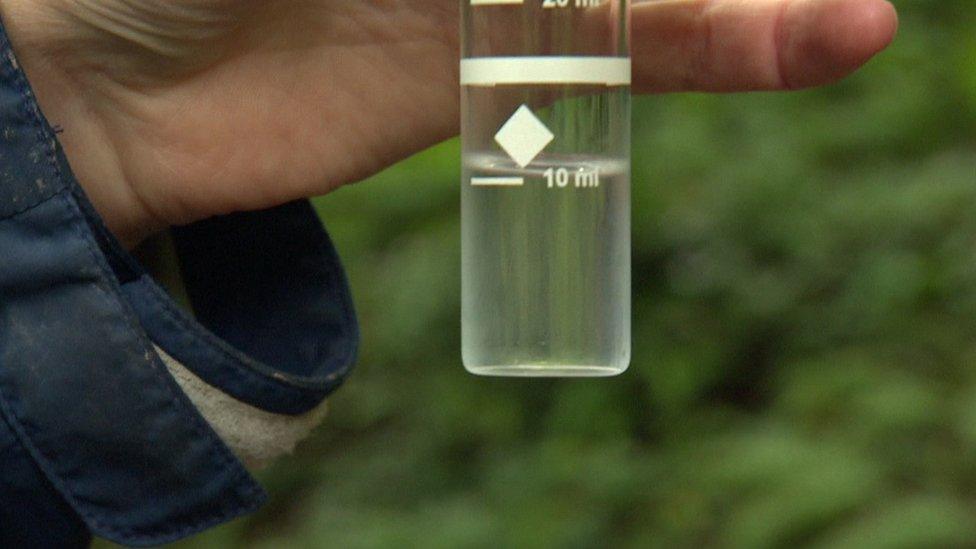
- Published21 December 2021
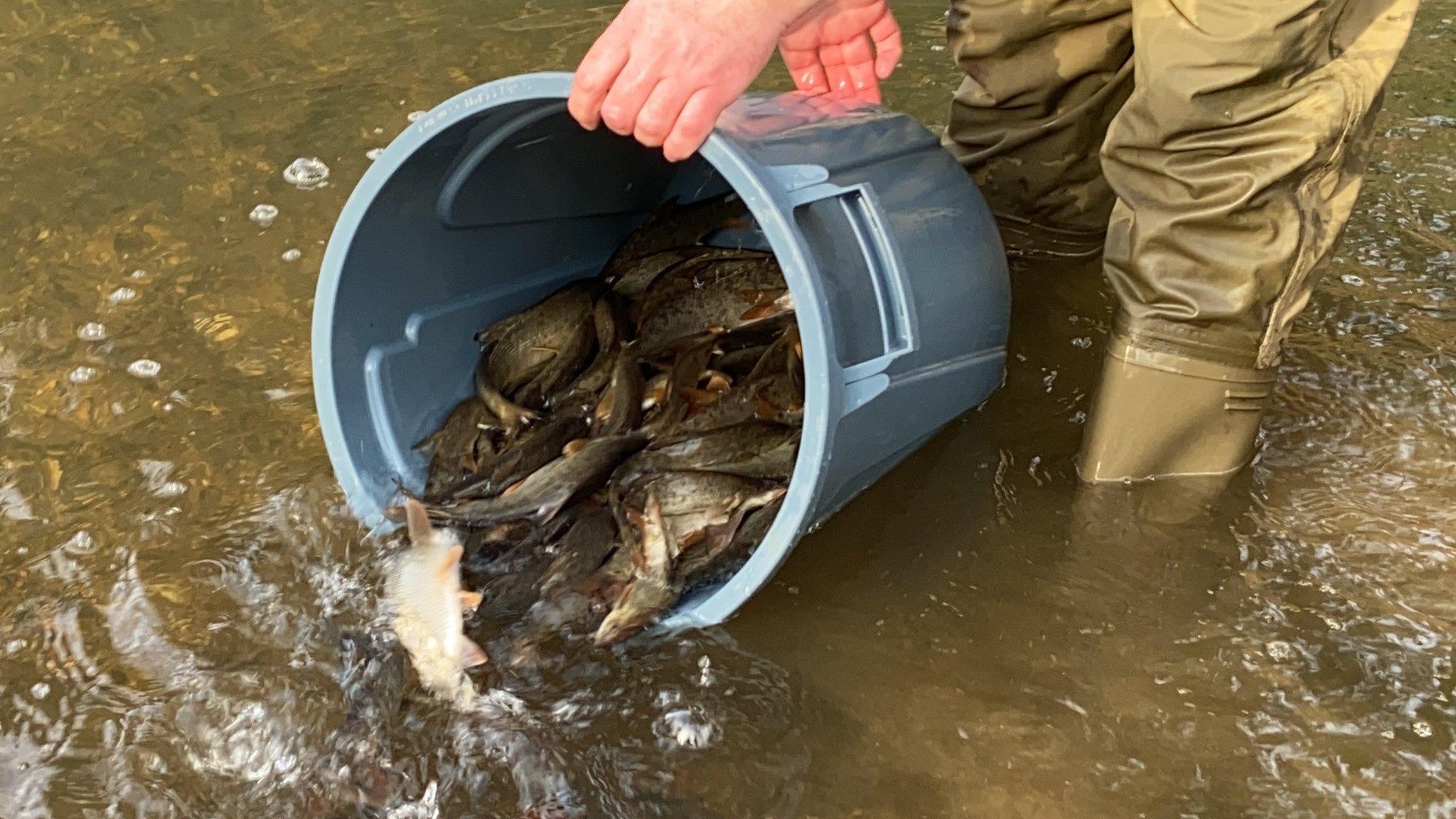
- Published21 December 2021
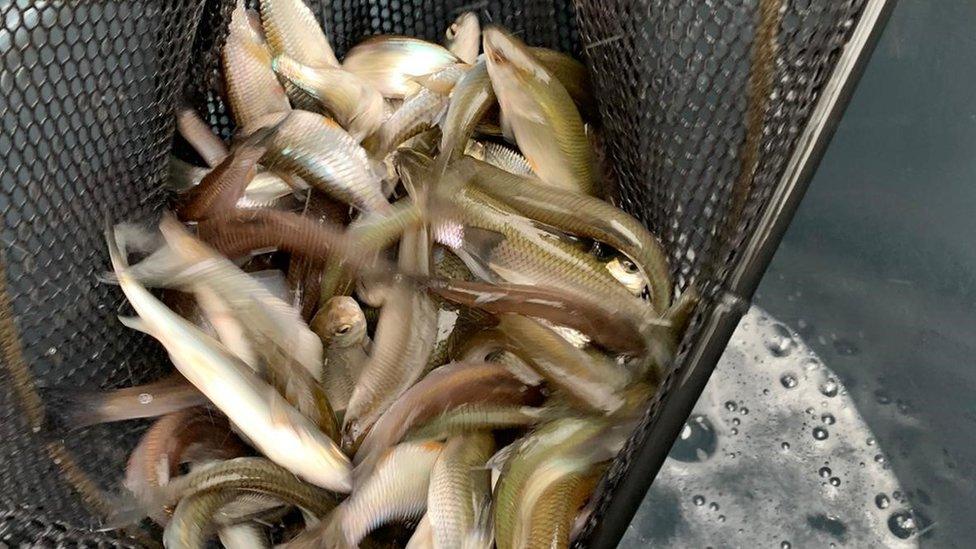
- Published25 May 2022
